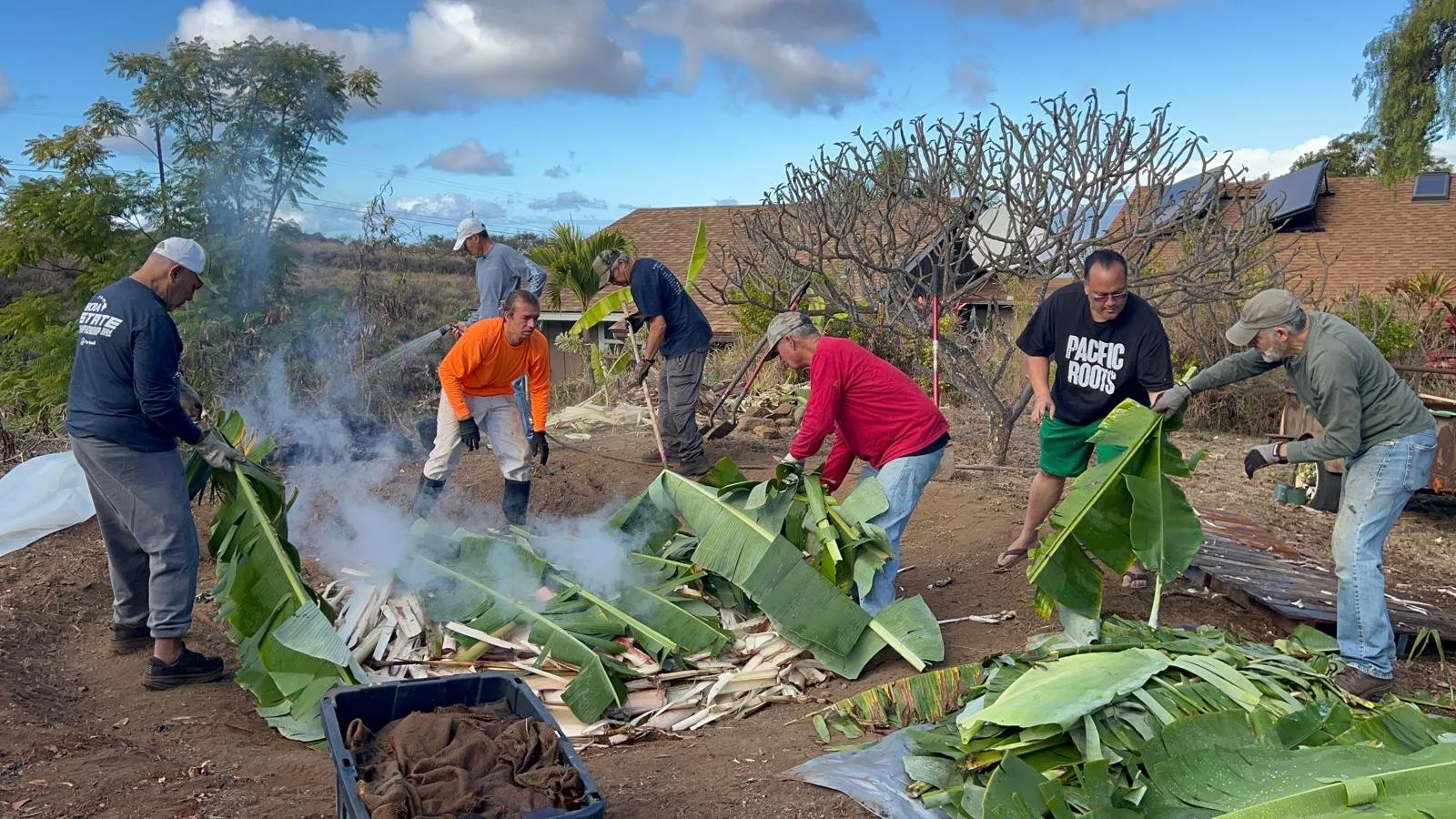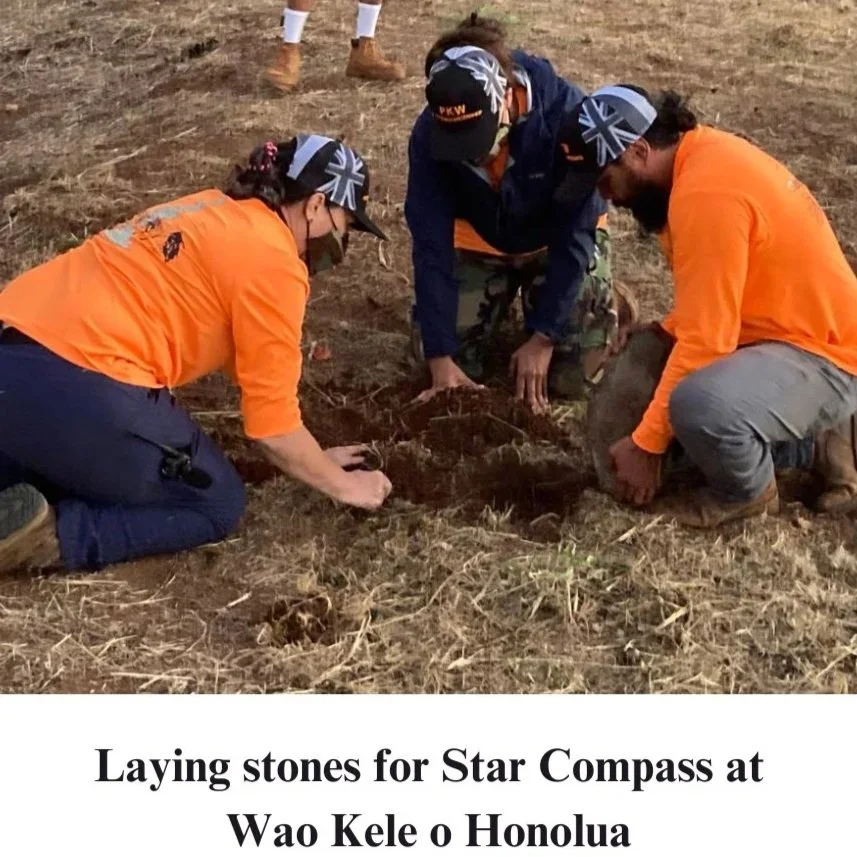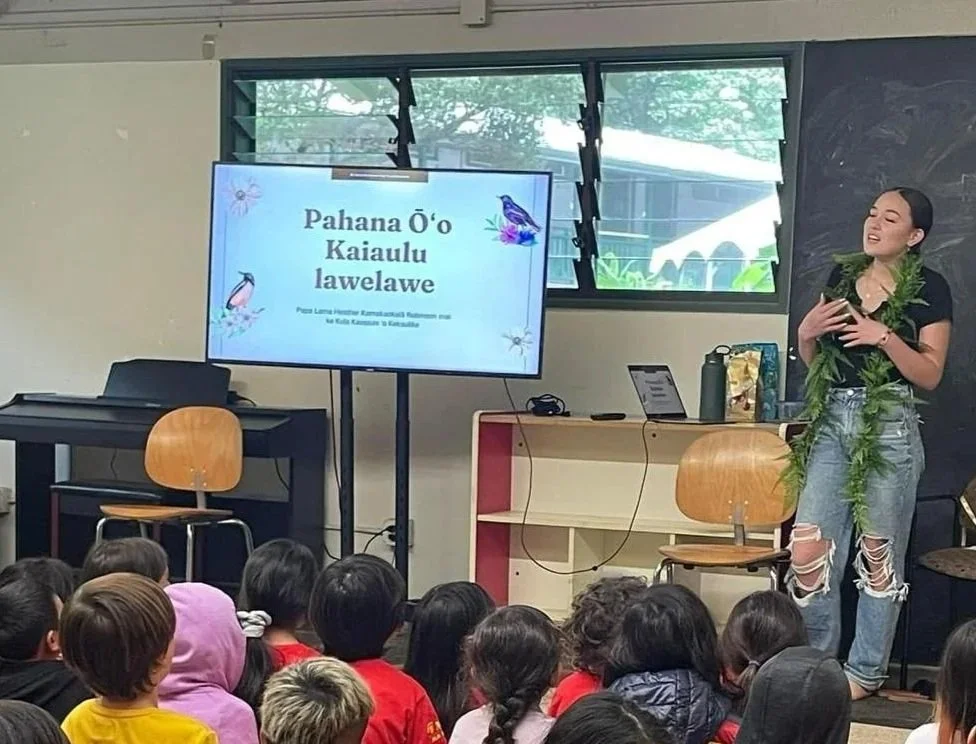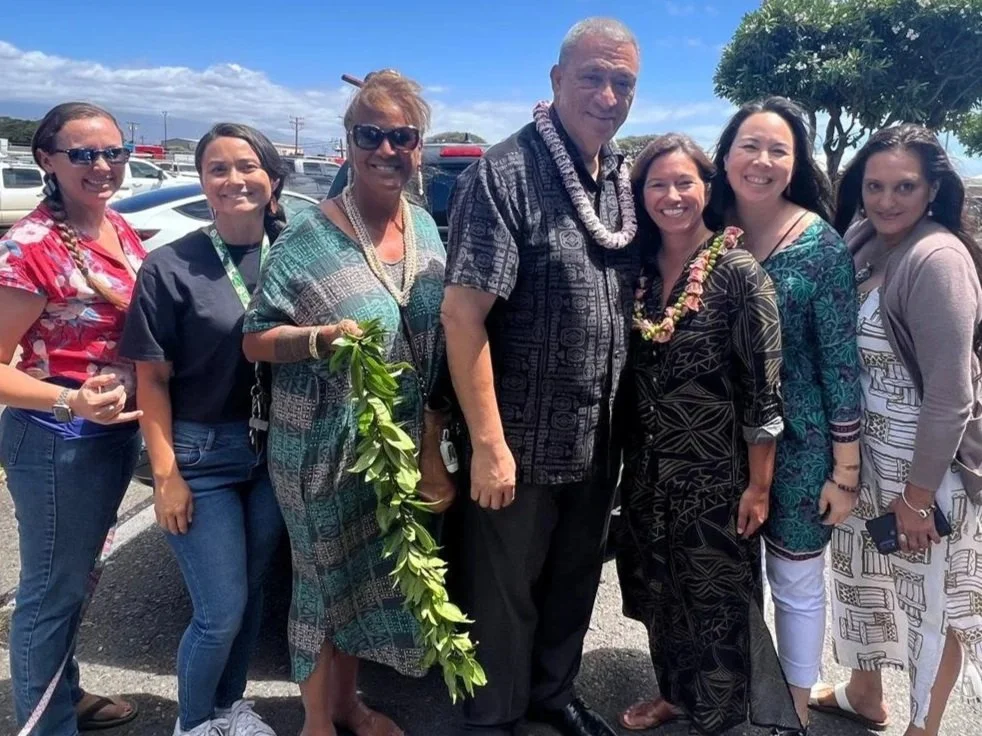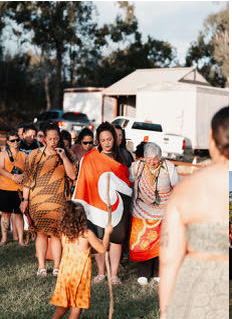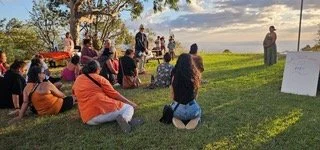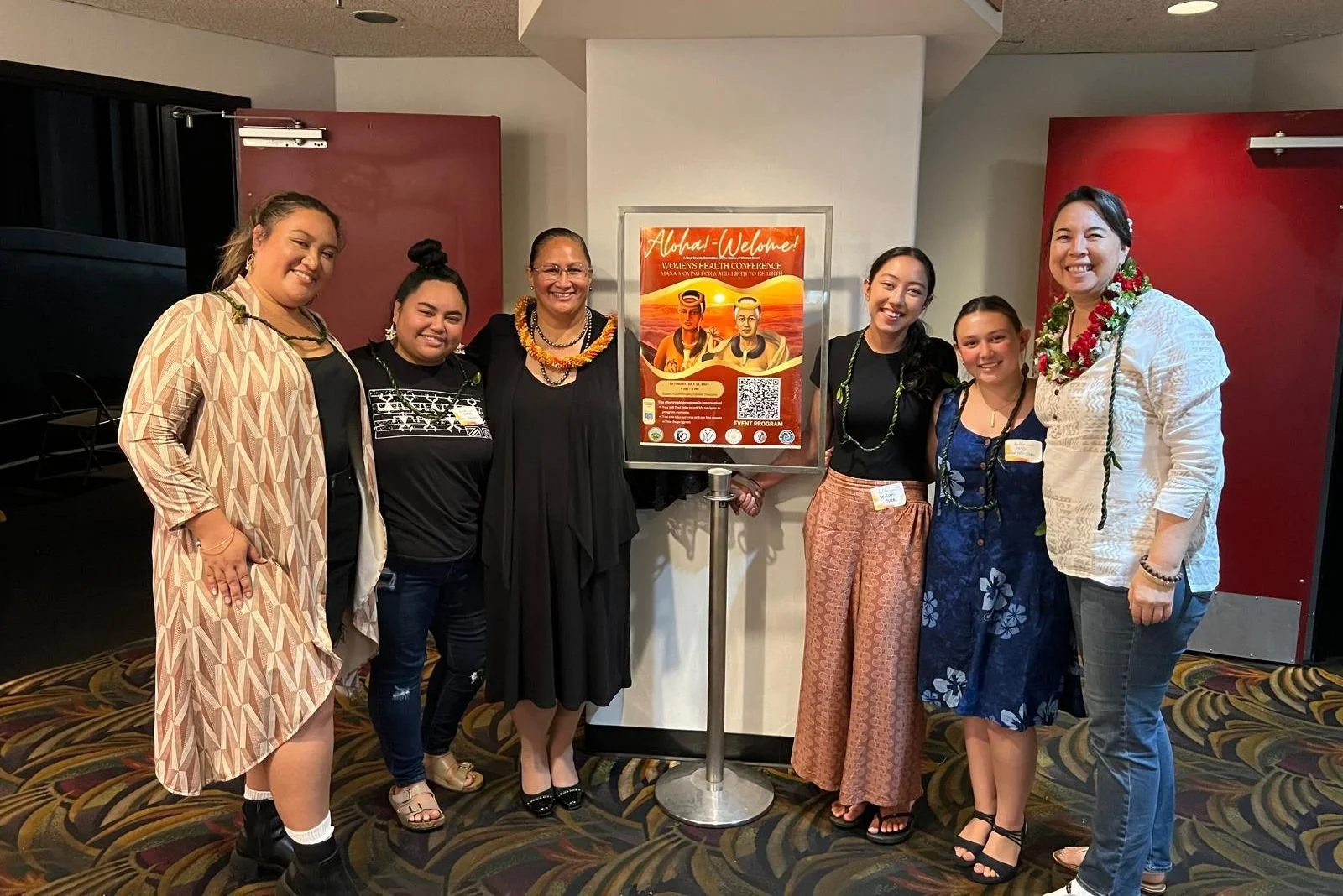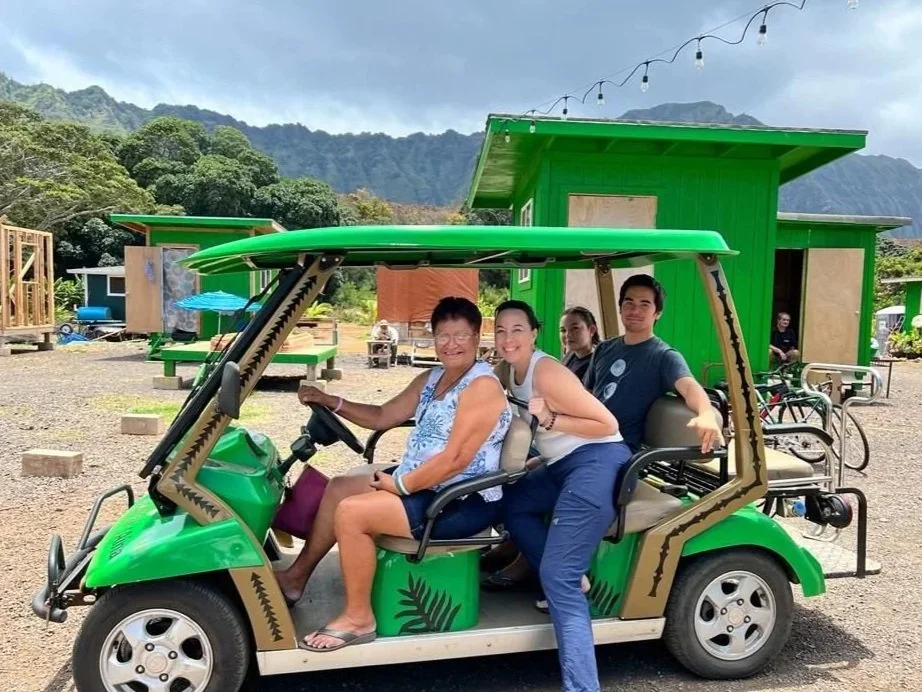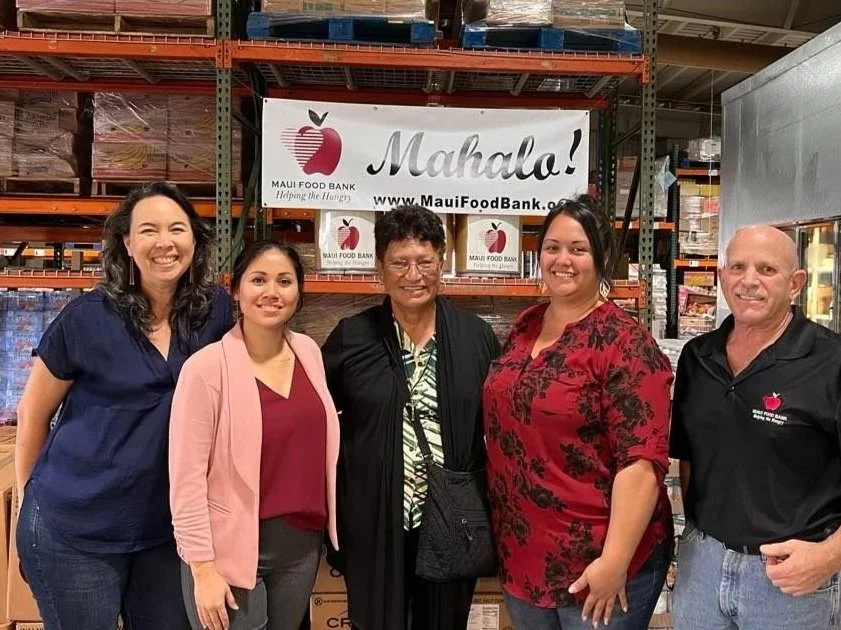Priorities
Our Strategic Priorities
At Kumukahi Ke Aloha, our work is grounded in Hawaiian Soulfulness™—a discipline of Aloha that guides how we serve, heal, and uplift. Our strategic priorities reflect the values most essential to our mission and the wellbeing of our lāhui. These priorities are rooted in our cultural identity and lived realities, and they guide the creation and delivery of all initiatives and programs.
Hawaiian Soulfulness™ is anchored by three foundational values:
Aloha – the sacred connection to love and the creator
Pilina – the deep relationships that bind us to land, ancestors, and each other
ʻIke ʻoiaʻiʻo – the pursuit of ancestral truth and alignment with what is spiritually one
These values ensure our work is both grounded in cultural truth and open to tools that support healing. As our kūpuna remind us, "Aʻohe pau ka ʻike i ka hālau hoʻokahi"—not all knowledge is learned in the same school.
Our founder, Malia Davidson, a Master Teacher of the teachings of world-renowned healer Dr. & Master Sha, has integrated Tao healing practices that harmonize frequency and energy with applied action. These practices—such as soul-level forgiveness, vibrational chanting, and energy alignment—have supported her in achieving outcomes of hoʻoponopono and clearing negativity with greater clarity and speed. Importantly, these tools are always grounded in Native Hawaiian principles passed down by Aunty Morrnah Simeona, the revered kahuna laʻau lapaʻau who brought hoʻoponopono into a form accessible for modern healing. This approach is also deeply aligned with the teachings of Aunty Pilahi Paki and Kumu Kawaikapulehua Hewett, whose wisdom on Aloha, spiritual discipline, and cultural leadership continues to guide our work.
Aloha ʻĀina & Food Sovereignty
We honor ʻāina as chief and kanaka as its servant—"He aliʻi ka ʻāina; he kauwā ke kanaka." Aloha ʻĀina means more than land stewardship—it is the spiritual, cultural, and political foundation of our identity. Seeds begin in darkness, and from that sacred Pō (darkness), life pushes through the soil toward Ao (light). As reflected in the Kumulipo:
"O ke au i mākananā ka pō,
Pō i ka pō,
Pō ke Ao,
Pō ke Ao loa…"Translation (adapted):
At the time when the earth became hot,
At the time when the heavens turned about,
At the time when the sun was darkened,
At the time of the intense darkness,
Born was Darkness,
Born was the Night,
From the Night came Light…
We recognize that the same applies to our people—our healing, our growth, and our resilience. Our food sovereignty efforts are rooted in this rhythm and promote regenerative agriculture, seed-to-sale systems, and traditional knowledge.
Key Components:
Regenerative Agriculture – Teaching and practicing mālama ʻāina through sustainable farming methods and composting systems that honor soil as a living entity.
Seed-to-Sale Systems – Cultivating native and culturally significant crops while training youth in value-added product development and business acumen.
Native Ecosystem Restoration:
Initiatives such as planting native trees and shrubs, protecting native forests, and restoring ocean ecosystems, engaging local volunteers in hands-on conservation work.
Cultural Stewardship – Reinforcing ancestral land-based relationships, emphasizing that land is our ancestor and teacher, with protocols that reflect reverence and kuleana.
Outcomes:
Increased community access to healthy food, revitalization of ancestral agricultural practices, and youth-led stewardship initiatives that honor ʻāina.
Cultural and Generational Healing
We foster healing through moʻokūʻauhau (ancestry), cultural practice, and intergenerational relationships. This priority sustains Hawaiian Soulfulness by empowering ʻōpio (youth) and kūpuna (elders) to engage in shared learning, ceremony, and expression of identity. As in the creation chant of the Kumulipo, we understand that healing begins in Pō—a place of deep reflection and sacred beginnings—before rising into the light. Our strategies emphasize grounding in land and ancestry to build pathways of identity, service, and community renewal.
Key Components:
Intergenerational Knowledge Exchange – Creating spaces for kūpuna to pass on moʻolelo, lei-making, and cultural protocols to ʻōpio through mentorship and ceremony. Where ʻōpio can share with keiki (children)
Soul Filled Practices – Applying hoʻoponopono, meditation, and chant to promote healing, clarity, and identity reformation rooted in Hawaiian Soulfulness.
Reflection – Honoring that we are all born with Aloha and have the ability to tap into this energy to guide personal and communal transformation.
Peer Learning Circles:
Small-group discussions and mentorships that allow participants to share insights and build supportive networks.
Outcomes:
Strengthened identity, improved mental wellness, and increased pilina (connection) between generations and community.
Disaster Recovery & Community Resiliency
Born out of the tragic 2023 Maui wildfires, our efforts continue to support trauma recovery and resilience-building. We serve individuals and families navigating grief, displacement, and systemic challenges with culturally grounded support systems.
Learn more about the August 8, 2023 Maui Wildfires and a snapshot of the culture and history here!
Key Components:
Culturally Based Trauma Care – Offering Hawaiian Soulfulness sessions to survivors to process grief and restore hope through identity and spiritual reconnection.
Resource Navigation – Assisting families with systems access (housing, food, health) grounded in cultural advocacy and trust-building.
Resilience Building – Developing long-term strategies with community stakeholders to fortify preparedness, healing, and collective memory.
Information & Advocacy:
Maintain regular communication with community members through updates, news integration, and collaboration with local media, ensuring transparency and community involvement throughout the recovery process.
Outcomes:
A culturally resilient community with long-term recovery pathways rooted in Aloha, memory, and empowerment.
Indigenous Health and Midwifery
We believe in restoring Indigenous pathways to wellness. From laʻau lapaʻau (plant medicine) to midwifery, we support programs that center bodily sovereignty, cultural safety, and access to ancestral knowledge in healing. We are proud to work closely with the Pacific Birth Collective who is pioneering this effort on Maui and implemented Hawaiian Soulfulness education into their programming.
Key Components:
Ancestral Wellness Pathways – Supporting lāʻau lapaʻau, hoʻoponopono, lomilomi, and birthing practices as normalized and respected healing modalities.
Body Sovereignty Education – Hosting women’s conferences and workshops that teach consent, reproductive health, and Indigenous body wisdom in culturally safe ways.
Training & Mentorship – Developing new cultural health practitioners through mentorship with existing kahu, kāhuna, midwives, and health educators.
Outcomes:
Increased access to culturally congruent healthcare, improved reproductive autonomy, and the emergence of new Indigenous healing practitioners.
Housing Equity and Anti-Houselessness Advocacy
Everyone deserves a place to call home.
Today, only 47% of Native Hawaiians remain in Hawai‘i, while 53% live in diaspora across the continent and beyond. This growing divide is more than a demographic trend—it is a cultural and sovereignty crisis.
Our County partners and frontline workers are working tirelessly to address housing and homelessness across our islands. Their efforts, rooted in care and community commitment, have made a difference for many. Yet, the scale of the problem is vast, complex, and deeply rooted in generations of systemic inequity.
According to the 2023 Point-in-Time Count, 28% of those experiencing homelessness in Hawai‘i identified as Native Hawaiian, though Native Hawaiians represent only 19% of the state’s population. On Oʻahu, 51% of unsheltered individuals were Native Hawaiian or Pacific Islander, despite comprising just 10% of the island’s population.
Nationally, Native Hawaiians and Pacific Islanders experience the highest rate of homelessness in the U.S., with approximately 121 per 10,000 people experiencing homelessness—more than any other racial or ethnic group.
We must ask:
What happens when there are no Hawaiians left in Hawai‘i?
This is not just about housing. It reflects generations of unfulfilled promises—including those made under the Hawaiian Homes Commission Act—and the urgent need to ensure the future of our people, our culture, and our place in our ancestral lands.
We are grateful for the State & County’s efforts, but it will take all of us to restore balance.
Key Components:
Advocacy & Coalition Work – Partnering with local and state organizations to elevate Native Hawaiian housing needs and influence equitable policies such as Living Way Church Maui with the efforts of Kahu (Senior Pastor) Greg Dela Cruz.
Collaborative Construction & Renovation Projects – Work with local government advisors and community members (as exemplified by the ongoing efforts with Aunty Blanche McMillan) to create affordable, dignified living spaces.
Dignified Housing Models – Exploring communal living, kauhale models, and land-based tiny homes that align with cultural values and ancestral living patterns.
Outcomes:
Reduced Native Hawaiian houselessness and diaspora, increased ability to remain on ancestral lands, and renewed hope for the next generation of kānaka ʻōiwi.

